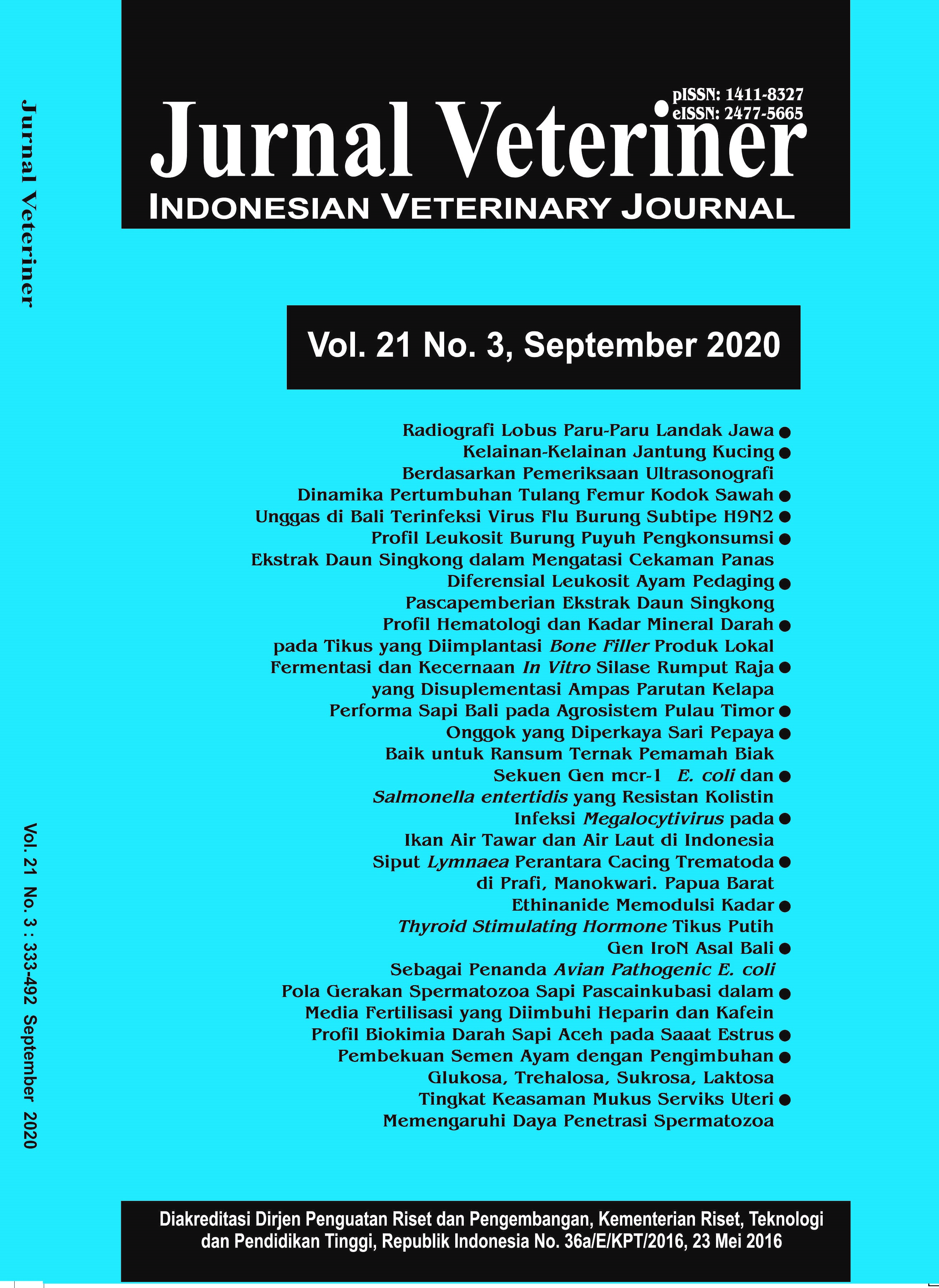Ethionamide Modulates of Thyroid Stimulating Hormone, Thyroxine, and Triiodothyronine Levels in White Ratstimulating Hormone (TSH), Thyroxine (T4), and Triiodothyronine (T3) Serum are potentially modulated Level by Ethionamide in Rats
ETHIONAMIDE MEMODULASI KADAR THYROID STIMULATING HORMONE, THYROXINE, DAN TRIIODOTHYRONINE TIKUS PUTIH
Abstract
Multidrug-Resistant Tuberculosis (MDR-TB) infection is not solely caused serious impact for patient and cause long recovery process. Multidrug-Resistant Tuberculosis needs specific treatment approach using second-line TB drugs. Ethionamide as one of medication used in MDR-TB are known to cause greater side effects compared to the first-line drugs. One of side effect like hypothyroidism is remain unclear. There is limited study about role of ethionamide cause hypothyroidism. In this present study, 24 male, wistar rats were divided into three groups: ethionamide group; positive control positive (propylthiouracil) and negative control group (received distilled water only) and treated accordingly for 12 week. Under ketamine and xylazine anesthesia, blood sample were collected from retroorbital vein at 8 and 12 week, put in EDTA tube and stored -20Ë%C until use. After last sampling, rat were sacrificed using CO2 chamber. Our data showed that thyroid stimulating hormone (TSH) levels in ethionamide group is increased from 8 weeks to 12 weeks significantly, but there is no significant changes in control groups. Thyroxine (T4) levels is trend decreased from 8 weeks to 12 weeks compared to control groups. There is no change of Triiodothyronine (T3) levels. Effect of ethionamide on thyroid hormone (T3 and T4) levels was not prominent and there were no significant changes observed. Interestingly, we observed an increase of TSH level after ethionamide treatment. Taken together, 12 week treatment of ethionamide tablet might potentially modulate thyroid hormone (T3 and T4) levels that is reflected from an increase of TSH levels in the plasmas feed back negative mechanism.



















